Controlling anger is not learned in our schools so let’s start learning it now, with 10 ways to control anger. You no longer need to be a victim of anger, as there are easy ways that you can take right now to start dealing with this issue.
According to Merriam-Webster definition of anger, it is “a strong feeling of being upset or annoyed because of something wrong or bad : the feeling that makes someone want to hurt other people, to shout, etc.“
But we really don’t need to define it. We have all experienced times in our lives when we were angry, so I am pretty sure we all know how it really feels.
What we need to start doing is releasing or letting go of our anger so it doesn’t hurt us anymore.
If you are in a hurry I’v made a YouTube video about this post
What are the effects of anger?
There have been lot of studies done that show the correlation between anger and various health issues. From just this one article published at Journal of Medicine and Life we can quickly see that there is a link between anger and coronary heart diseases, atherosclerosis, hypertension, bulimic behavior, type 2 diabetes and also increase in consumption of alcohol, cigarettes and caffeine.
There are probably a lot more additional side effects, that are completely realistic but perhaps, at first, not that directly related. For example a connection between “driving anger” and crash related conditions such as losing control of vehicle, losing concentration and finally crashing.
What do I feel and think when I am being angry?
Anger can be defined, when we look at it in a more structured way, as a strong desire to strike out, to hurt and stop the other one, but with hesitation. We might or might not strike out.
See there is usually an element of fear that is built in anger. And anger is not just one simple feeling, it is actually a group of feelings.
We can group a lot of other feelings into this group, like feeling:
- agitated,
- annoyed,
- boiling,
- disgusted,
- explosive,
- frustrated,
- hateful,
- irritated,
- mad,
- outraged,
- resentful,
- stewing,
- vengeful,
- violent,
- volcanic…
Those are all feelings that fit nicely in our “anger group”.
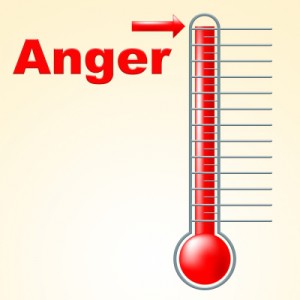
And when we experience those feelings, our usual though patterns can go wild with thoughts like:
- Do it my way or else
- Don’t even think of it
- Don’t push me around
- Don’t tell me what to do!
- Drop dead!
- F… off!
- F… you!
- Get out of my way
- I’ll get them
- I’ll kill you!
- I’ll never give in
- I’m not doing anything
- Not a chance
- Not on your life
- Now you’ll pay
- Out of my way
- Who do they think they are?
- You better do it my way, or else!
As you can see, it’s a pretty destructive way of both feeling and thinking, that can rarely bring some long term benefits in our lives.
Scale of emotions
Lester Levenson created a simple chart he called “Scale of Emotions” that you can see below, and that is used to measure you energy available for taking constructive action in life.
It is presented like this:
The above scale illustrates how our natural, inherent energy is diverted into the task of suppressing, and keeping suppressed, the feelings (past decisions—past programs).
Our mind in turn uses that energy to direct us into the thinking and patterns of behavior which have been predetermined by those past decisions or programs.
You can clearly see that in anger we have about 70-79% of our energy directed to suppressing what we are feeling, which leaves us only about 21-30% of energy to take constructive action.
These are of course rough estimates, used to show you the bigger picture behind this feelings.
The more anger we manage to release or let go, the more energy we have in life. And that energy can be used in all sort of constructive ways.
Let’s now see what are some of the ways to control our anger feelings.
10 ways to control anger
1. Breathe and count to 10
“When angry count to ten before you speak. If very angry, count to one hundred.” ~ Thomas Jefferson
Think about the last time that you got angry. You could probably remember that moment when your vision started to get blurred, and you got that mix feeling in your body of energy and adrenaline rush, notice that in that moment, while all those things were happening simultaneously, you actually stopped breathing.
Next time you go trough a situation that stirs up anger in you, just remind yourself to start breathing more deeply. So do this:
- use your inside voice (it would probably be better that way) to slowly count from one to ten. While counting, use the 3-3-3 breathing method, meaning for the first 3 seconds you inhale, then you hold your breath for 3 seconds, and then you exhale for another 3 seconds.
- at the same time, as best as you can, welcome the feeling of anger fully and completely. While you breathe allow the feeling to be present and just try to observe it like you are looking at some scene on TV. And say YES to the feeling. Let go of fighting with it. Fully allow it at the moment when you are experiencing it.
Do this for a couple of rounds and you will soon notice the feeling of anger starting to subside.
2. Take full responsibility for the feeling
“When a man points a finger at someone else, he should remember that four of his fingers are pointing at himself.” ~ Louis Nizer
Often when we get angry somehow we naturally assume that it is the other person, situation or event that is responsible for that. In reality, that is not the case. We just reacted to an outside stimulus (that person, situation or even) and we have assigned it some sort of meaning, and then, probably feeling threatened, we jump-started our hardcore “trying to control” mode of operation, which is what anger basically is.
We desperately try to control that outside person, situation or event, with simple brute force or by using intimidation. And we all know that in the long run that really doesn’t work that well.
But there is another way, instead of simply blaming outside stimulus, you just fully accept that the feeling of anger is simply one of many feelings inside yourself, and that it is just a sensation being provoked by something. And then you can use any method to release it or to let it go.
Because only when you own it, you can then do something about it. If you are on the victim side, meaning “poor you” is being pushed into anger by “bad other”, then you are powerless to do anything about it.
So start taking responsibility for what you are feeling in any given moment.
3. Recognize and release underlying want
“Anger is never without a reason, but seldom with a good one”. ~ Benjamin Franklin
Often times we don’t really listen to the message that the anger is trying to tell us. Why are we really angry?
Like I said, it is because we assigned a meaning to some outside stimulus.
What would this meaning be? Is it a reminder from the past, from our childhood about what or who we are?
Does it remind us of a certain experience, perhaps when we were really young, when we felt helpless or threatened, and we swore to ourselves we will never feel like that again?
Question the anger and you might be surprised with the answer that you come up with. Why exactly am I angry?
All of our feelings can be placed under three major (dominating) wants. Those are:
- wanting approval from the world
- wanting to control world
- wanting to be safe from the world
Those three wants can be, each for itself, easily released or let go of. It does take a conscious decision to do so, and taking responsibility for the feeling or want in the first thing that we need to do.
4. Spend time in the nature or with animals
“The best remedy for a short temper is a long walk.” ~ Joseph Joubert
Connecting with nature is the easiest and most affordable means of therapy. It doesn’t matter what is the current astronomical season of the year, each has it’s own beauty and a way of relaxing a human being. Or should we say, relaxing a human mind?
Especially if you combine nature and spending quality time with animals, like dogs, cats, horses etc.
Almost all animals can give you unconditional love pretty easily, actually they do that unconditionally and effortlessly, and often times that is all that it takes to remind us of our natural state, that of peace of mind.
5. Surround yourself with real friends
“My father always used to say that when you die, if you’ve got five real friends, then you’ve had a great life.” ~ Lee Iacocca
Most of us are lucky enough to have perhaps a few good friends. How I define a good friend is simply someone who will never judge me. But they will also never sugarcoat the truth for me.
That is important thing to have in our lives. If you have just one friend who will never judge you but at the same time be completely honest with you, you have all the conditions necessary to heal yourself completely from anything, including anger.
Notice that I am not talking about having “friends” who will blindly take our sides no matter what we do. Or those who will lie to us just because they don’t want to upset us.
Real friends will never lie to you. They will not blindly hold your side just because they are being your “friend” and that is “right thing to do”.
If they notice that you are doing something wrong, they will not just play along or help you in justifying it, more likely they will point out that what you are doing could be perhaps wrong.
That is actually their strong suit, because they can tell you from their own perspective, what they saw happened when you got upset and you can use that to question yourself.
They can then offer you advice which can help you check your blind spots and heal much quicker. That is, if their advice doesn’t make you more angry… But hey, if so you can use that anger and go to step 3 of this post.
6. Don’t drink and don’t do drugs
“Drugs, alcohol and ego. They are a bad mix.” ~ Don Dokken
Alcohol and drugs just numb your real underlying feelings. They don’t solve the problem.
The real issue for your anger will remain hidden in your unconscious mind, and since there is no escaping it, you will just be delaying the inevitable.
It will only be a question of time when the anger will show it’s ugly head once again.
Also, for some of us, when there is increase in alcohol intake there is also increase in anger and rage but at the same time decrease in discrimination of things we can or should do, and that is never a good mix.
7. Meditate or talk with yourself
“To meditate means to go home to yourself. Then you know how to take care of the things that are happening inside you, and you know how to take care of the things that happen around you.” ~ Thich Nhat Hanh
Meditation doesn’t mean that you need to enroll in a course or start doing some crazy yoga positions. Meditation can be a simple thing as listening to yourself while you are sitting on a bench in a park, or near the sea or ocean, or somewhere in the field.
Meditation is done when you stop expressing yourself and start connecting to your inner self. Everyone can do it.
And best of all, it’s free. It’s especially great if you connect it with all other steps. Try doing it with step 4.
8. Get plenty of sleep
“I love sleep. My life has the tendency to fall apart when I’m awake, you know?” ~ Ernest Hemingway
Sleeping is so important but often overlooked. And I personally don’t believe someone else can tell you what’s the optimal duration of sleep for you.
Meaning that you don’t rely on advice from people telling you that you should sleep 6 or 7 or 8 hours a day and that there is a value or a rule that can be applied perfectly for everyone.
Each of us is a little bit different and you know for yourself what is the optimum number of hours that you need to sleep in order to wake up relaxed and function normally in this world. Trust yourself. Listen to yourself. Don’t complicate things more then they already are.
Sleep enough to feel rested.
9. Use humor to shift focus
“It is impossible for you to be angry and laugh at the same time. Anger and laughter are mutually exclusive and you have the power to choose either.” ~ Wayne Dyer
Use humor but don’t use sarcasm. Sarcasm is really a hidden form of anger that we use, sometimes directed toward ourselves but also toward others, and we try to mask it as something that is “funny”.
And perhaps it could be funny, but in the long run, it’s not that good for you. You are looking for a way to let go of the anger, not joke with it while you continue holding on to it.
And if you use sarcasm a lot, it probably means you are just hiding your negativity and aggression beneath it. Just take this for checking and see for yourself.
10. Forgive
“Holding on to anger is like grasping a hot coal with the intent of throwing it at someone else; you are the one who gets burned.” ~ Buddha
I know its not easy to forgive.
But it’s the skill among other skills that we really need to develop for ourselves in order to live a happy life.
There are people in our lives towards which we hold a grudge. And it’s no help for us to try to justify this.
There is no point in justifying that we are right for holding a grudge or that it would be somehow wrong to let that grudge or hate go, like we would be letting the other person get a free pass or slip from the righteous hook unpunished.
We really need to start changing perspective on this issue of forgiveness.
We need to start questioning ourselves how do we feel. Do we feel good when we are holding a grudge or do we feel bad?
How does it help me to bring myself down in lower energy feelings, like apathy, grief, fear and anger and to justify that by “it’s OK, I am the one being morally right”.
Something happened somewhere in the past, and that past can be even from just a second ago.
It is of no use to us to keep holding on to it. We need to let it go, if we ever expect to find peace.
Please understand, forgiving someone doesn’t mean that you somehow accept that what they did to you was right or justified or that it was your fault or you are to blame for that.
The fact that they probably did something wrong doesn’t change when you forgive. It does not give them a “free pass” somehow.
They will have to face their own karma eventually. And it might even be through you. But you don’t need to be drowning in negativity while hoping for that to happen.
Forgiving simply means that you, just for yourself, let go of holding on to the negativity, you let go of holding on to that poison in yourself as a hope that you will be able to punish another one, who has done you wrong.
When you forgive, you just let go of your own negativity, that’s all.
And that is all that it takes, for you to start going towards a state of peace. And would you rather be in peace, or would you rather be holding on to negativity insisting that it is a “right thing to do”?
Additional resources to help you with anger
There is a great online course that I recommend for a lot of issues, including the ones related to anger.
It is completely self-paced, online digital audio streaming course that comes with 30-day full money back guarantee.
That means if you don’t find it helpful with your anger issues in 30 days, you get a full refund.
And since it is an online course (no shipping fees) you really have nothing to loose if you decide to check it out.
You can read my review about it here, or just go directly here to order it.
Please don’t be angry if sometimes in the near future the price suddenly goes up, as it probably will. Don’t say you were not warned.
If those courses are too much for you in this moment, or they don’t resonate with you, I recommend that you check out my reviews and recommendations page or my article about Top 10 Inspirational Books of All Time.
I recommend a book there, about anger, that will definitely help you gain some inner knowledge and understand what is really happening and also allow you to start dealing with this issue.
It’s like they say, “if you always do what you have always done, you will always get what you have always got.”
Do something different now!
I hope you loved my 10 ways to control anger and please feel free to comment or ask questions below.
Love,
Sinisa
Images courtesy of Stuart Miles at FreeDigitalPhotos.net

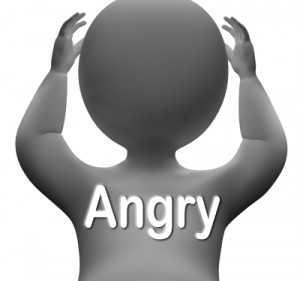
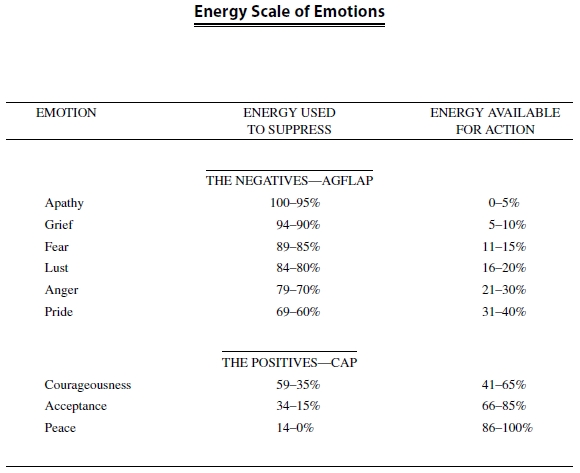






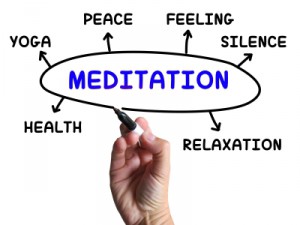


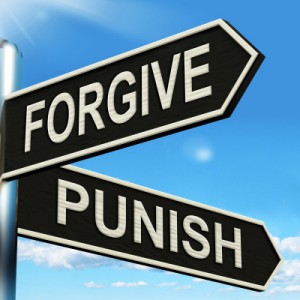

Anger is really a nasty little thing that hits everyone from time to time. For me the trigger is often unfairness and the feeling that I have been treated unfairly. It happened to me at work and it took me some tome to realize that being pissed off at certain persons was putting me down and I each time I had to go to work I noticed that my heart started to beat faster and I felt tension in my shoulders…for me it was a torture because I really adore my work so I knew that the only way how to stop the negativity of certain people is to send them love and to forgive them for all the things they did and for all the things they are still doing ….because nothing annoys them so much as the fact that they can’t reach you with their negativity 🙂
I know it’s not easy but in the end it’s worth it! I managed to do it by using Reiki and being surrounded with positive people and real friends! Cos in the end being in peace it’s the most important gift you can give to yourself!
Keep calm and love! 🙂
Hi Matty! 🙂
I agree completely, being in peace is the most important gift that you can give to yourself, for me personally I have managed to let go of my anger consistently with releasing, although Reiki sure did help in a huge way.
I guess it depends on what levels you are getting triggered, what is the root underlying cause of the anger in the first place, and how strong you are resisting it. If you don’t want to look at anger at all, it can be difficult to get to the root cause. And also (regarding the techniques) you need to find what resonates with you the most, we are all different and we process events in a different way. What works for one, might not work for other.
And yes, it was my experience too, that with pure unconditional love we can start to dissolve everything that triggers us, and we can begin just with giving approval to that NO voice that we hear in our heads, which is a strong voice of resistance, especially with topic of forgiveness.
For one reason or another, forgiveness is something that can be really challenging subject for most of us, but is also the most liberating one 😉
Take care!
Love,
Sinisa